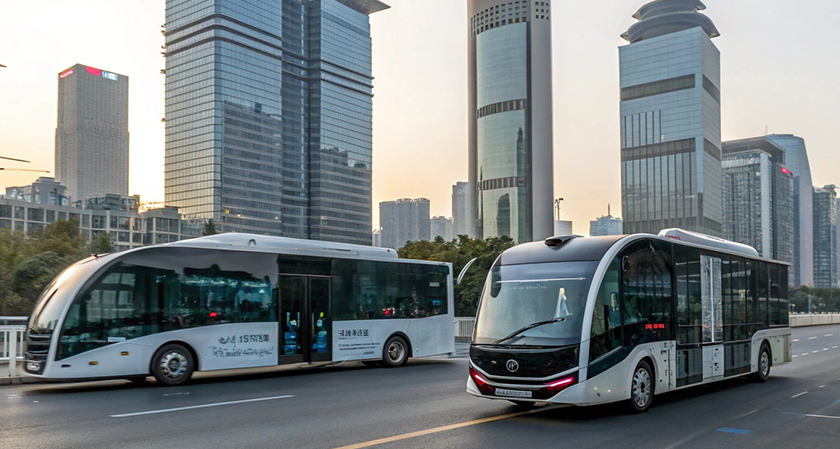Home Industry Smart Infrastructure Jinan’s Driverless Buses...
Jinan’s Driverless Buses Move China toward a Smarter Future
Smart Infrastructure

Business Fortune
07 November, 2025
As China speeds up its transition to smart, self-driving cities by 2025, a 22-year-old driver-turned-monitor rides Jinan's fully autonomous bus.
On the streets of Jinan, the capital of Shandong Province in eastern China, a quiet revolution is taking place. Sitting in the rear corner of a car, Ding Pingshun, a 22-year-old bus driver, was photographed clutching a tablet rather than the steering wheel.
As the self-driving bus glided along Huanghe Avenue in Jinan's autonomous driving demonstration area, Ding said, "It feels quite peculiar to switch from being a driver of manned buses to a safety officer for autonomous ones."
Since June, Jinan Public Transport Group has been testing this autonomous bus on a 6.4 km route that includes crossings, traffic lights, and difficult maneuvers. Completely manufactured in China, the nine-seat, 5.5-meter vehicle uses radar, lidar, and cameras for autonomous navigation.
According to Ding, the bus has done well thus far, choosing to stop or take a diversion on its own when it comes across impediments. He stresses that he is more of a monitor than an active driver.
Eight spots are available for weekend reservations on the test route, which is accessible to the general public. Families frequently reserve rides to experience this futuristic mode of transportation that combines modern technology with everyday living. The project incorporates smart infrastructure in addition to road tests. The bus parked itself at a V2G charger at a low-carbon green charging station. In roughly 40 seconds, a robotic arm created by State Grid's Jinan power supply company installed the plug.
The deputy station head, Wang Shuai, described how their self-developed arm employs pure visual recognition to recognize cars, precisely insert plugs, and enable smart charging, increasing efficiency through smooth automation.
In China, similar initiatives are growing. Before the 15th National Games, 19 autonomous minibuses started operating on five routes in Guangzhou. Wuhan's robotaxis introduced inter-river services, while Chengdu tested six-meter self-driving buses and published a white paper on vehicle-road-cloud systems. Experts predict that 2025 will be a pivotal year for the integration of smart cities, as the increasing usage of autonomous cars in sanitation and logistics will change urban life.


































